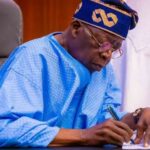
The Rector of The Federal Polytechnic Ilaro, Dr. Akinde Mukail, has said it important for Nigeria to look inward by exploiting tax as a means of stabilising the economy, bridging the infrastructure gap, supporting education, and creating employment opportunities.
Mukail made the call during the 49th Induction Ceremony of the Chartered Institute of Taxation of Nigeria, themed, ‘Navigating the tax landscape: A journey of professional excellence’, in Lagos on Thursday.
In his keynote address, Mukail said, “Taxation is not merely about numbers and regulations; it is a critical force driving economic growth, social development, and the overall well-being of our nation. In a world where financial landscapes are continually evolving, your role as tax professionals becomes even more crucial.”
According to him, taxation had become a key source of funding for nations, and Nigeria was not an exception.
The 16th President of the Chartered Institute of Taxation of Nigeria, Mr Samuel Agbeluyi, said, “Currently, the digital economy is accounting for between 15 and 20 per cent of global gross domestic product.
However, he added, tax administrations in Africa including Nigeria remained unclear on the most effective and efficient way to tax the digital economy.
“Yet the challenges arising from technological advancement and intricate business models continue to mount; thus, increasing the likelihood of tax revenue leakages,” he said.
Agbeluyi disclosed that the OECD Two Pillar Solution was a key international effort addressing taxation issues.
“The FIRS and OECD are working to tailor it for Nigeria. Tax professionals must advocate for effective policies that optimise benefits for the country,” he added.
According to him, the establishment of the Presidential Committee on Fiscal Policy and Tax Reforms reflected a resolute commitment to charting a course for sustainable economic growth through effective and efficient taxation.
He emphasised that the outcome of the committee’s work, if properly implemented held great potential for bridging fiscal policy gaps and fortifying the taxation framework in Nigeria.
Agbeluyi called for highly competent professionals to oversee every facet of the tax system in Nigeria.
According to him, continuous learning remained a priority for every member of this institute, to ensure they stayed ahead of emerging trends in taxation.





